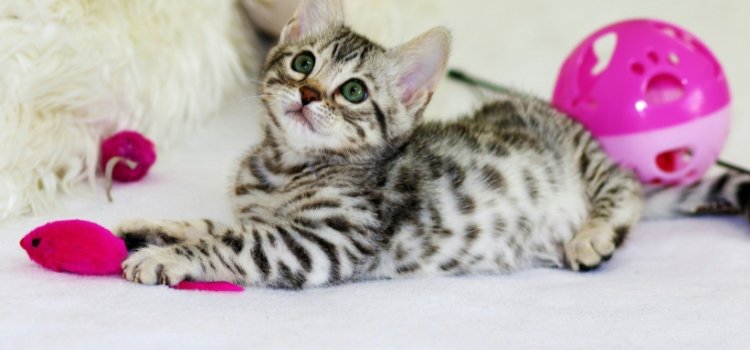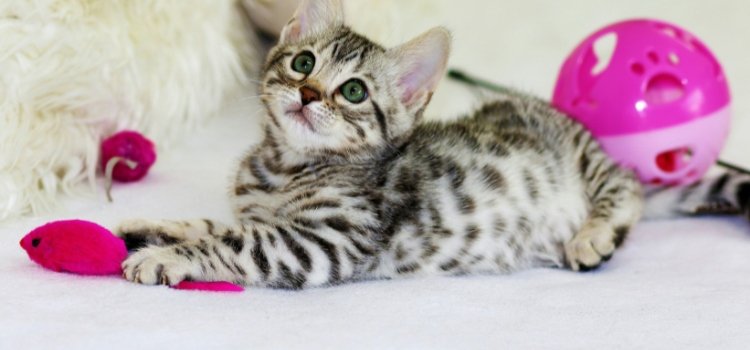As an Amazon Associate I earn from qualifying purchases.
The Peril of Cats swallowing Plastics: A handbook for Pet Keepers
Cats are inquisitive creatures, often putting themselves into predicaments that leave pet owners puzzled and anxious. One of the most disturbing activities by some cats is an unquenchable desire to eat plastic. If you have ever caught your cat friend chewing a plastic bag or toy before, do not worry too much about it because you are not alone. However, what are the real dangers involved in this habit and how can you safeguard your cat from harm?
Every responsible cat owner needs to appreciate the hazards associated with plastic consumption by their pets. This inclusive guide looks at why cats engage in such behavior, the immediate steps one should take in case their pet swallows plastic, potential health risks, and practical preventions to keep your feline away from this dangerous material.

Why Cats Eat Plastic
Curiosity and Exploration
Curiosity is one identifying factor of cats and exploration as well. They are attracted to the crinkly texture of plastic which could mimic prey sounds and textures encouraging them to hunt after some rodents. This may stimulate their instinct to catch or play with these wrappers thereby getting tempted to bite them off as well. Any plastic or other hazardous substances must be kept out of reach of cats lest they ingest it causing possible harm to themselves. Also, having lots of interesting toys around together while keeping them busy would help minimize attraction towards plastics.
Pica Disorder
A pet keeper needs to understand that pica is a serious condition that can greatly affect a pet’s health. Pet lovers who notice signs of pica should ensure they take their pets to veterinarians for checkups. It helps when the vet identifies underlying medical conditions responsible for pica while providing appropriate treatment. Therefore, to avoid developing pica, we must meet all our pet’s dietary needs. Providing balanced meals will reduce the chances of your cat developing pica too. Besides that, for your cat to prevent it from being poisoned, you should store away non-food items. In conclusion, once given the right care and attention, pica in cats can be well managed and treated.
Stress or Anxiety
However, when stressed or anxious cats may eat differently than usual. For cats, moving house or getting a new pet is always stressful. At the same time, boredom and unfamiliarity in their surroundings can also make them anxious. Cats with stress may resort to consuming plastics as a way of reducing such kind of anxiety. This characteristic should not be ignored since it affects their health negatively. It is important to identify the root causes of stress and anxiety in cats and provide a suitable environment that makes them comfortable while engaging them in mentally stimulating activities. Seeking advice from a vet regarding how to manage or reduce stress will help greatly. Cat Ate Plastic Wrapper: Immediate Steps to Take
Avoid Them Eating More
In case your cat consumes a plastic wrapper, it is important to take immediate action for its safety. The first and foremost step in preventing them from eating more of this material should be taken straight away. You can gently redirect their attention away from the plastic if you catch your cat doing so. Offering them a safe and interesting toy might help divert their attention from the dangerous thing. Furthermore, observe your kitty and keep him/her away from any potential sources of plastics. If your cat continues to show signs of distress or discomfort, consider professional advice by contacting your vet for further directions and possible treatments as they may deem fit. Always make sure that your feline friend does not have access to hazardous substances as this will prevent threats before they happen.
Evaluate Your Cat’s Situation
Keep an eye on your cat and assess their behavior and condition regularly. Watch out for choking sounds, coughing or difficulty breathing; these symptoms can indicate a dangerous situation occurring within their body which requires urgent medical intervention. Keep an eye on your pet and bring him/her to the vet at once if some significant signs are bothering you. Similarly, pay attention whenever there has been any change in eating/drinking behavior or peculiar character changes among them all. By watching out for such signs, one would normally know when something is wrong with their furry friends.
Contact Your Vet
You need to urgently call the vet office nearest to you at this point so that they guide what next after these steps like observing it at home or taking it for evaluation.
Obey What Your Veterinarian Said
Follow instructions given by veterinarians diligently especially those who took part in treating him/her because some doctors may advise owners to check his/her behavior every few minutes or even hours just like eating habits as well as litter box attitude.
Health Risks Associated with Cats Eating Plastic
Digestive System Obstructions
While cats ingest plastic materials easily into their digestive systems, it becomes an issue since they can cause clogs. This would lead to great discomfort in the cat and if no action is taken, it may also become life-threatening. The sharp edges of plastic can also damage your kitty’s delicate stomach and intestines lining thus causing a wide range of diseases. Always keep out plastics and other things that are not food away from your cat for such health risks to be avoided. It is important to immediately seek veterinary care when you suspect your feline has consumed plastic to prevent any possible complications.
Choking Hazards
Because small pieces of plastic can pose choking hazards, particularly for animals like cats, we should be aware of this danger. Cats tend to chew on small objects which could result in a choking hazard if swallowed by them. In severe cases, surgery might be required to remove blockages or foreign bodies from the gastrointestinal system. Prevent this by keeping away tiny plastic objects from pets and routinely inspecting toys plus other accessories for wear and tear. Additionally, giving them safe chew toys will help them stop chewing unnecessary items that could lead them to choking risk. We must take decisive action against potential choking dangers; thus ensuring that our pets will always remain safe and secure.
Dangerous Chemicals
Pet owners, especially those who keep cats, should be aware of the potential toxicity of plastic materials. Among others, chemicals applied to the likes of plastic bags can be very dangerous to a cat that swallows them. Cats could be poisoned by dyes and preservatives used in the manufacture of these materials if they are ingested. It is important to keep plastics like bags away from cats and also ensure one gets immediate medical help once any toxic substance is suspected to have entered into a cat. Being proactive about preventing exposure to such harmful chemicals will promote safety for our cat friends.
Prevention and Solutions
Keeping Plastic Out of Reach
Be vigilant as regards where you leave plastics around your house. Keep your shopping bags and other things in cupboards or on high shelves so that your cats cannot easily reach them.
Providing Safe Alternatives
Give your cat safe substitutes such as crinkly toys developed specifically for feline playtime. Also, playing with your cat regularly can assist in curbing the urge to chew non-food items.
Consulting a Veterinarian
If plastic consumption persists, consult with your veterinarian to rule out underlying health issues and develop a plan specific to behavior modification.
Creating a Cat-Friendly Environment
Create an environment free from stress for your pet at home. This includes providing regular feeding times, enrichment opportunities around the house, and space where your cat feels safe enough to go when it needs some peace and rest.
Frequently Asked Questions
Why Do Cats Love Plastic Bags?
The rustling sound and lightweight texture of plastic bags can mimic prey-like movements which makes them fascinating objects for play according to the minds of cats.
Is It Safe for My Cat to Lick Plastic Bags?
Although licking it may not make it go into its stomach immediately, this still poses a danger. A cat’s tongue may stick onto the bag while licking or they might swallow a piece by mistake during this licking process.
Why Do Cats Lick Plastic Grocery Bags?
Cats are known for their love of different textures. This could be a way for them to explore the unfamiliar sensations provoked by plastic bags.
Conclusion
Cats eating plastic is a clear and present danger that can hurt their health and well-being. As a caring pet owner, preventive measures and prompt response are necessary to keep your cat safe. Remember, your vet is your best ally in navigating these situations. For this behavior problem to be reduced it requires proactive prevention, creating cat-friendly surroundings, and giving healthy distractions. You hold the key to your cat’s health therefore be alert, and may you enjoy many happy years with a plastic-free contented Kitty.
Amazon and the Amazon logo are trademarks of Amazon.com, Inc, or its affiliates.
